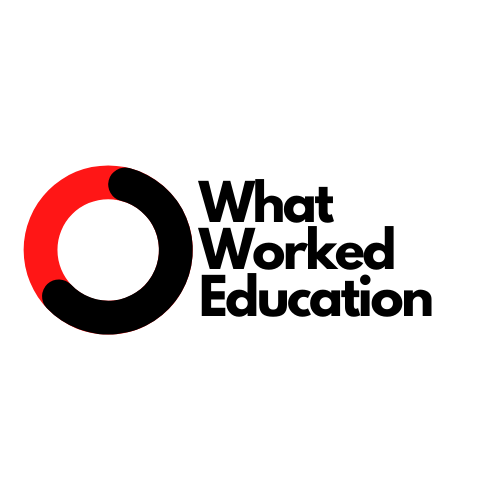EEF Study: Exploring Teacher-Led Micro-RCTs
Frequently Asked Questions (FAQs)
What is this project about?
This is an EEF-funded feasibility study exploring whether teachers can use micro-RCTs (mini Randomised Controlled Trials) to evaluate a 6-week spelling intervention in their own classroom using the WhatWorked Teachers online platform.
Why is the EEF funding this?
The EEF is interested in testing whether teacher-led micro-trials can generate high-quality, cost-effective evidence about what works in classrooms. This is part of a wider strategy to empower schools to become active participants in evidence-based practice.
Is this a literacy intervention or a research project?
It’s primarily a research project, testing whether teachers can lead small, robust trials using a user-friendly platform. However, you’ll also trial a promising literacy intervention (Look, Say, Cover, Write, Check) during the study.
Is this relevant to our school?
If you’re a
state-funded primary school in England with classes in Years 2-5, and interested
in evaluating literacy approaches, this study is for you.
Will it take a lot of time?
The intervention lasts just 6 weeks, made up of 10-minute activities. The randomisation, analysis, and impact report generation are all completed by the WhatWorked Teachers platform.
Are there any costs to take part?
No - this project is fully funded by the EEF. All materials and reports are provided free of charge.
Yes, we ask
that you discuss your participation with your headteacher and ask them to sign
the MOU.
Who is responsible for delivering the intervention?
The class
teacher or a TA will deliver the intervention.
Do we choose which students get the intervention?
No. The platform handles random
allocation (either by class or by pupil) depending on the trial design you
choose. You’ll simply select the format you prefer. You can randomise at
class-level (one class receives the intervention, one does not) or pupil-level
(a small group of students receive the intervention, e.g. targeted support with
a teacher or TA). If you only have one class, you’ll need to choose pupil-level
randomisation - this means selecting a small group of pupils within your class
to try the intervention (for example, supported by a TA), while the rest
continue with usual teaching. If you have two classes in the same year group,
you can choose class-level randomisation - where one class receives the
intervention and the other does not. The Trial Wizard will then randomise your selected
groups. If you have mixed year groups, you’ll need to choose pupil-level
randomisation - this means selecting a small group of pupils within your class
to try the intervention (for example, supported by a TA), while a group of
students in the class that are in the same year group continue with usual
teaching.
How do we run the pre- and post-tests?
You’ll use a short 20-word spelling test before and after the intervention. Anonymous pupil scores are entered into the platform to generate your impact report.
Do we need to submit learner personal data?
No. Only anonymous pupil scores and teacher feedback are collected. We do not collect any named pupil data. The study complies fully with GDPR and ethical guidelines.
Do we need parental consent?
As the practices being tested are part of standard teaching practice in schools, the intervention is for half a term and no personal data is collected from pupils as only anonymous details are entered into the platform, consent from the headteacher is sufficient.
What if something goes wrong during delivery?
The intervention is short and flexible. If you miss a session, you can catch up the following day. Support is always available by email at support@whatworkedteachers.com.
Can I get help interpreting my impact report?
Yes - although the reports are designed to be user-friendly, we’re happy to talk through any part of your report once it's generated.
Can we try another intervention after this study has ended?
This is a trial
run of the platform, so you’ll be able to access it until you’ve finished your
classroom project. If the platform is rolled out more widely in future, we’ll
invite schools to get involved in the next phase.
What happens after we finish the trial?
As soon as you enter post-test scores, you will immediately receive an impact report showing the outcome for your class. You
will be invited to complete a short feedback survey and take part in an
interview/focus group to share your experiences and feedback.
Will we get any follow-up?
Yes - we’ll share updates about the project’s findings and the potential for a Phase II scale-up study.
Will our results be published?
No individual school, teacher, or pupil will be named in any reports. Results may be aggregated to explore patterns, but all data is anonymised.


